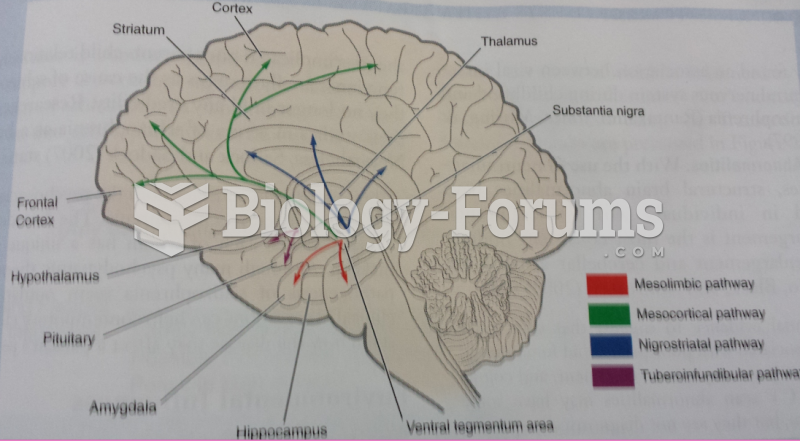|
|
|
To maintain good kidney function, you should drink at least 3 quarts of water daily. Water dilutes urine and helps prevent concentrations of salts and minerals that can lead to kidney stone formation. Chronic dehydration is a major contributor to the development of kidney stones.
This year, an estimated 1.4 million Americans will have a new or recurrent heart attack.
More than 4.4billion prescriptions were dispensed within the United States in 2016.
A strange skin disease referred to as Morgellons has occurred in the southern United States and in California. Symptoms include slowly healing sores, joint pain, persistent fatigue, and a sensation of things crawling through the skin. Another symptom is strange-looking, threadlike extrusions coming out of the skin.
The calories found in one piece of cherry cheesecake could light a 60-watt light bulb for 1.5 hours.







